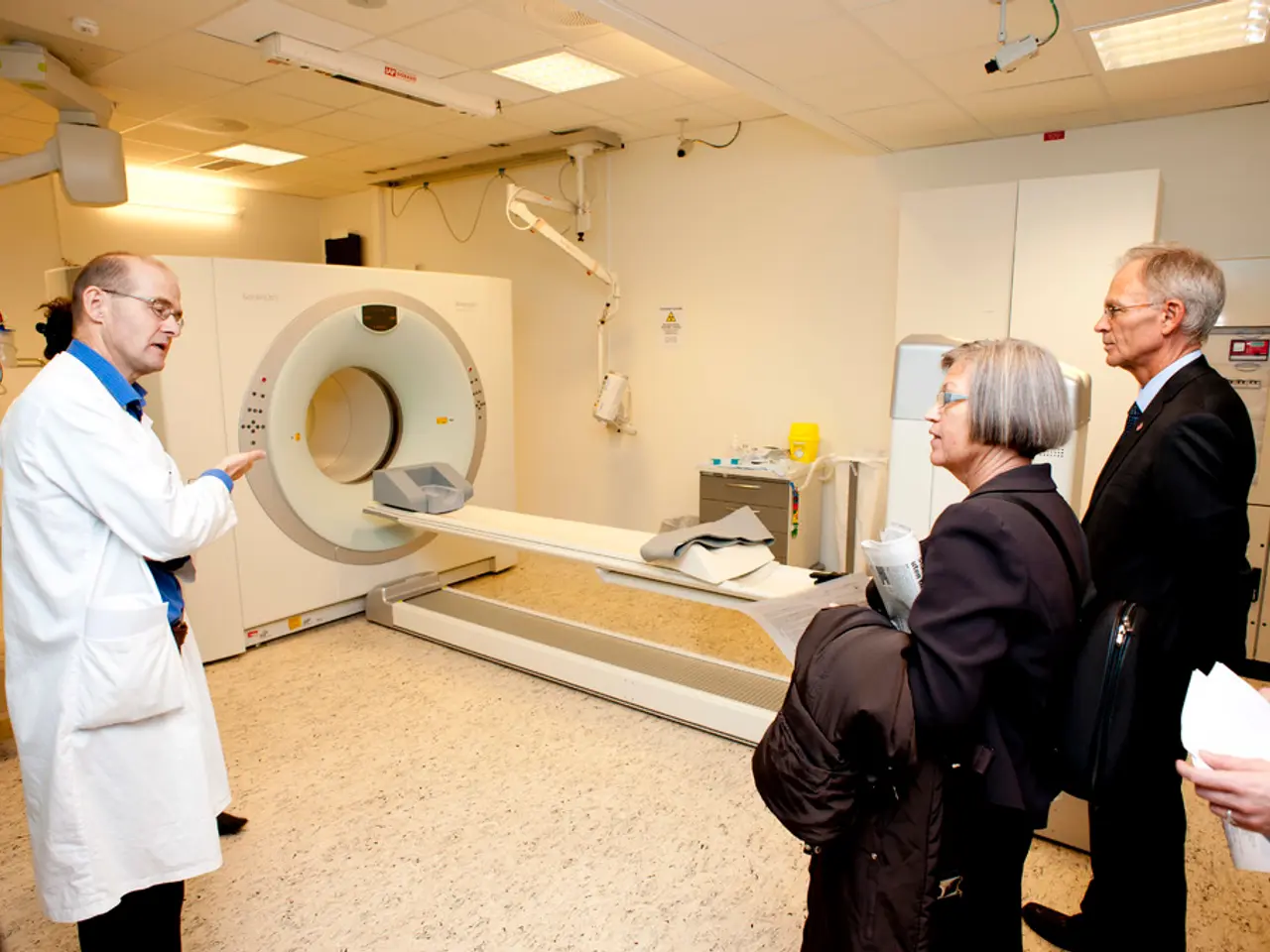Unraveling the Melody Within: Understanding the Process of Hormone Synthesis in Cells
**News Article: Unravelling the Intricate Process of Hormone Production in the Human Body**
Hormone production, a complex and intricate process, plays a pivotal role in maintaining the body's balance and overall health. This process involves multiple endocrine glands, cellular signalling pathways, and feedback mechanisms, ensuring hormones—chemical messengers essential for regulating metabolism, growth, reproduction, and homeostasis—are produced, released, and metabolized at the right times and in the correct amounts.
The process typically begins with the detection of a need for a specific hormonal response, such as low blood sugar, stress, or the need for growth and development. This stimulus is detected by various tissues in the body.
The next step involves the brain, specifically the hypothalamus, which acts as the main control centre for the endocrine system. It receives signals about the body’s state and responds by releasing releasing hormones (e.g., GnRH, TRH, CRH) that target the pituitary gland.
The pituitary gland, often called the “master gland,” responds to hypothalamic releasing hormones by secreting tropic hormones (e.g., FSH, LH, ACTH, TSH). These tropic hormones travel through the bloodstream to target specific endocrine glands (e.g., ovaries, testes, thyroid, adrenals).
Target glands (such as the thyroid, adrenal cortex, ovaries, or testes) are stimulated to produce and release their own hormones (e.g., estrogen, progesterone, testosterone, cortisol, thyroxine). For example, the ovaries produce estrogen and progesterone, which regulate the menstrual cycle and support pregnancy. The adrenal glands produce cortisol, aldosterone, and small amounts of sex hormones; the thyroid produces thyroxine (T4) and triiodothyronine (T3).
Once synthesized, hormones are secreted into the bloodstream, where they circulate to various tissues and organs. Hormones can act on distant target tissues (endocrine action), nearby cells (paracrine action), or the same cells that produced them (autocrine action).
Hormones bind to specific receptors on or inside target cells, triggering a cellular response (e.g., gene expression changes, enzyme activation, or ion channel modulation). This response helps restore homeostasis or drive physiological processes such as growth, metabolism, or reproduction.
Hormone production is tightly regulated by negative feedback loops. Rising hormone levels signal the hypothalamus and/or pituitary to reduce further hormone release, preventing overproduction. For example, high levels of thyroid hormones inhibit the release of TRH and TSH, reducing thyroid hormone production. In the menstrual cycle, rising progesterone from the corpus luteum inhibits further ovulation by blocking pituitary hormone release.
Hormones are metabolized (inactivated) primarily in the liver and excreted by the kidneys, ensuring hormone levels do not remain elevated indefinitely and helping maintain balance.
This step-by-step guide outlines the fundamental process of hormone production in the human body, highlighting the interplay between the nervous and endocrine systems, the role of feedback mechanisms, and the importance of balance for overall health. Understanding this process can help individuals better understand their bodies and the role of hormones in maintaining good health.
- The brain, specifically the hypothalamus, plays a key role in hormone production by acting as the main control center for the endocrine system, responding to the body's state and releasing hormones that target the pituitary gland.
- Science and medical research have revealed that the process of hormone production and regulation is highly intricate, involving not only the hypothalamus and pituitary gland but also other endocrine glands like the ovaries, adrenals, and thyroid, which produce and release their own hormones.
- Balance plays a significant part in the health-and-wellness aspects of hormone production, as hormones are metabolized primarily in the liver and excreted by the kidneys to prevent overproduction, ensuring proper hormone levels for optimal cognition and mind function.




